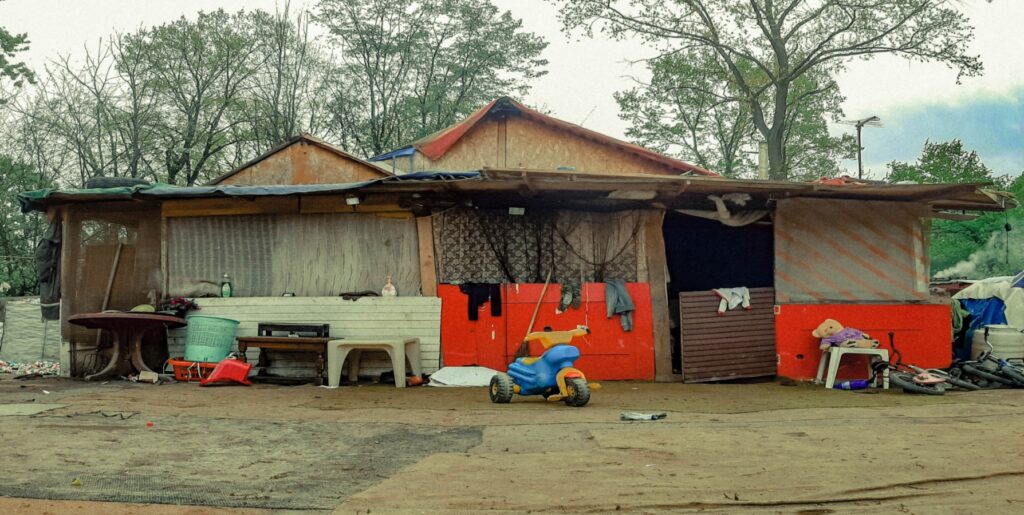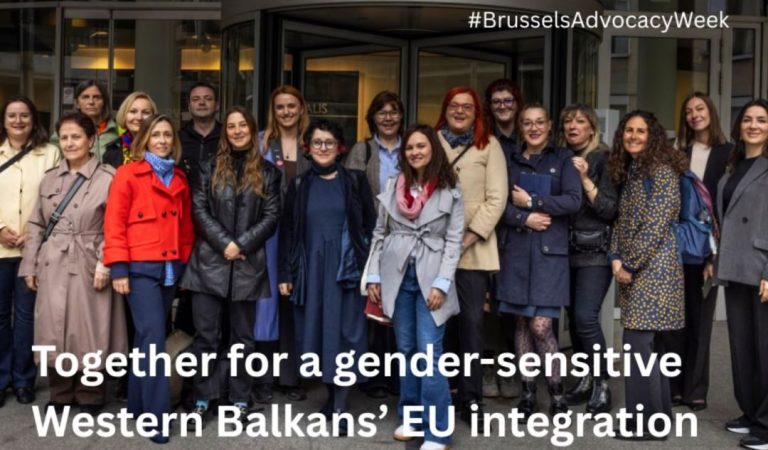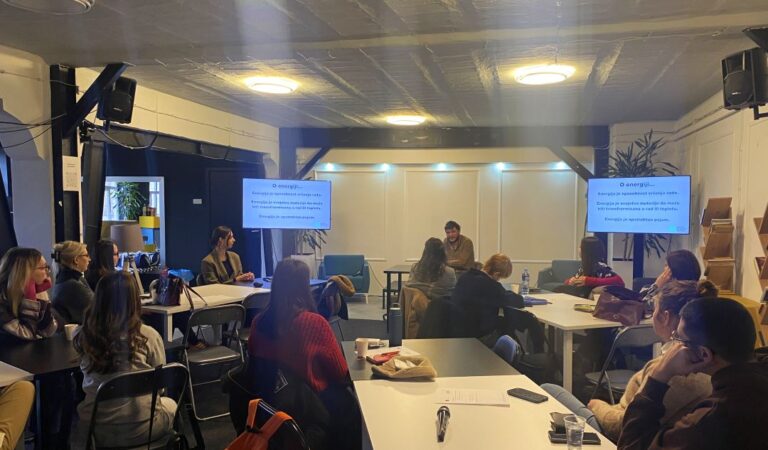In Belgrade, on 22 April 2020 – European Court of Human Rights has initiated procedure for the imposition of interim measure on the Republic of Serbia due to the danger of violation of the right to life and prohibition of inhuman and degrading treatment of Roma living in the informal settlement of Cukarica Forest in Belgrade.
There are 70 Roma families who live in this settlement, and who were left alone after they fled Kosovo in 1999, without any living conditions – without water, electricity and organized garbage disposal, surrounded by forests, recently in the company of rats. In the conditions of the pandemic of coronavirus, when it is urged on all citizens to hinder the spread of infection and protect themselves and their families through increased hygiene, several hundred people living here do not have the opportunity to do so.
After several attempts by the Initiative A 11 to animate the Government of the Republic of Serbia to take urgent measures to protect the most vulnerable ones (about our suggestions and appeals, below in the text) and when there are no other ways left of drawing attention to the problems of these people, the Initiative A 11 submitted the request for an interim measure of the European Court of Human Rights against of the Republic of Serbia.
The European Court of Human Rights acted promptly on this request and initiated the procedure against Serbia, clearly confirming that the situation in this settlement and the lack of reaction by the authorities present a serious and real risk of inhuman and degrading treatment of Roma living in this settlement and violation of their right to life.
We would like to remind you that there are at least 583 informal Roma settlements in Serbia. In almost 40% of these settlements, houses are not connected to the water supply network. This means that at least 25.000 Roma live in Serbia without water. Moreover, on March 17, the Initiative A 11 sent the Appeal to the Government of Serbia for taking urgent measures to protect the most vulnerable, and already on March 20, in cooperation with the Social Inclusion and Poverty Reduction Team of the Government of the Republic of Serbia and some experts in the field of social rights prepared a proposal for measures to protect the most vulnerable during the fight against the coronavirus and forwarded it to the Government of Serbia.
The Government of the Republic of Serbia has not responded to this proposal to date. Meanwhile, the situation in the informal settlements is on the verge of a humanitarian catastrophe, and Roma displaced from Kosovo are particularly at risk. Without sufficient income, without the opportunity to do business in the informal economy, without electricity, water, protective equipment and adequate information on measures for prevention of coronavirus, Roma men and women are left to themselves, depending mainly on the humanitarian aid provided by civil society organizations from time to time. In the conditions of the state of emergency, the European Court of Human Rights is practically the only instance that Serbian citizens can turn to to protect their rights. The initiation of the proceeding for the interim measure of the European Court of Human Rights is a reminder to the Government of the Republic of Serbia that it can no longer ignore the tens of thousands of the most vulnerable ones, especially those affected by the pandemic.
The Initiative A 11 expects that the Government of the Republic of Serbia does not wait for the initiations of new procedures regarding the situation in other settlements, but to urgently takes steps to protect Roma living in the informal settlements.
Photo: Ivana Aćimović



